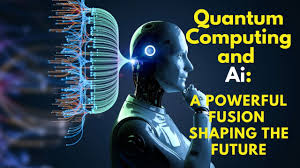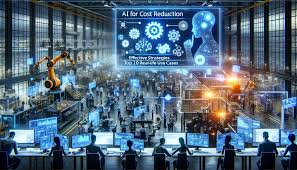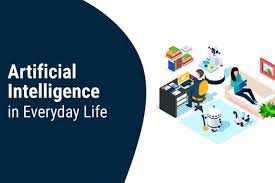
Understanding the Basics: AI and Quantum Computing
Artificial Intelligence (AI) refers to systems or machines that can perform tasks that typically require human intelligence, such as learning, reasoning, problem-solving, perception, and language understanding. AI has already made significant strides in a variety of industries, from healthcare to finance, and continues to evolve with advancements in machine learning and deep learning.
On the other hand, Quantum Computing operates on the principles of quantum mechanics, the fundamental physics of particles at the subatomic level. Unlike classical computers that process data in bits (0s and 1s), quantum computers use quantum bits or qubits, which can exist in multiple states simultaneously thanks to phenomena like superposition and entanglement. This allows quantum computers to perform certain calculations exponentially faster than their classical counterparts, making them ideal for solving complex problems that would be impossible or impractical for classical computers.
How AI and Quantum Computing Complement Each Other
-
Enhanced Machine Learning Models
One of the most promising applications of quantum computing in AI is the enhancement of machine learning models. Quantum computers have the potential to process and analyze vast amounts of data much faster than classical systems. This could lead to more accurate and efficient models, particularly for tasks like optimization, pattern recognition, and classification. Quantum-enhanced machine learning could revolutionize industries such as healthcare, where large datasets are analyzed for drug discovery, disease prediction, and personalized treatments. -
Speeding Up Problem-Solving with Quantum Algorithms
Quantum computers can speed up algorithms that are used in AI, particularly for problems that involve complex optimization or data fitting. For instance, tasks like finding the shortest path in large networks (critical for logistics and supply chains), training AI models on massive datasets, or even simulating complex physical systems could benefit from quantum-enhanced algorithms. In the future, this could lead to breakthroughs in AI applications ranging from autonomous systems to real-time decision-making in critical situations. -
Quantum-Inspired AI
Even before large-scale quantum computers are fully realized, researchers are already exploring quantum-inspired algorithms that use principles from quantum mechanics to improve classical AI. These algorithms take advantage of quantum concepts like superposition and interference to accelerate certain computations on classical computers. Quantum-inspired AI has already shown promising results in areas like optimization, image recognition, and data analysis, making it a stepping stone toward true quantum-AI synergy. -
Solving Complex Simulations
AI can benefit from quantum computing’s ability to simulate complex systems, particularly in areas like materials science, chemistry, and physics. For example, quantum computers could simulate molecular interactions and chemical reactions much more efficiently than classical systems, aiding AI in tasks like drug discovery, energy production, or environmental conservation. AI models could leverage these simulations to make better predictions and optimize solutions that would have otherwise been computationally infeasible.
Key Innovations on the Horizon
-
Revolutionizing Healthcare
AI has already started to transform healthcare, but the power of quantum computing could accelerate this change. Quantum-enhanced AI could analyze large biological datasets to discover new drug molecules, predict patient outcomes more accurately, and optimize treatment plans. For instance, quantum computers could simulate molecular interactions at a much higher precision, allowing AI systems to identify the most promising candidates for drug development. This intersection could lead to faster development of new treatments, more personalized healthcare, and better outcomes for patients. -
Advancing Climate Modeling and Sustainability
Addressing global challenges like climate change requires a deep understanding of complex systems, from weather patterns to ocean currents and ecosystem dynamics. Quantum computing could enable AI to model these systems with unprecedented accuracy, leading to more effective climate change mitigation strategies. For instance, AI models trained on quantum simulations could help identify optimal solutions for reducing carbon emissions or developing sustainable energy solutions. -
Improving Cryptography and Cybersecurity
As quantum computing poses a potential threat to current cryptographic systems, AI will be crucial in developing new encryption methods that can withstand quantum attacks. The intersection of AI and quantum computing could lead to innovations in secure communication, identity protection, and data encryption, ensuring that cybersecurity systems remain resilient in the quantum era. -
AI-Driven Quantum Hardware Design
In the realm of quantum computing itself, AI could play a pivotal role in optimizing quantum hardware. Quantum computers are still in their infancy, and designing qubits that are stable, scalable, and reliable remains a significant challenge. AI algorithms could help design better quantum circuits, optimize quantum error correction techniques, and improve qubit coherence times, ultimately accelerating the development of practical quantum computers.
Challenges to Overcome
Despite the exciting potential, the combination of AI and quantum computing also faces significant challenges. The field of quantum computing is still in its nascent stages, with limited access to large-scale quantum machines. Furthermore, quantum computers are highly sensitive to noise and errors, making their practical implementation difficult.
On the AI side, the need for vast amounts of data and the complexity of training models on quantum-augmented data pose significant hurdles. Integrating these technologies into existing infrastructure will require substantial investments in both research and resources.
Conclusion
The intersection of AI and quantum computing is one of the most exciting frontiers of modern technology, with the potential to unlock new levels of innovation across industries. While there are challenges ahead, the possibilities for faster, more efficient AI models, enhanced simulations, and breakthroughs in fields like healthcare, sustainability, and cybersecurity are immense. As quantum computing continues to evolve and AI becomes more advanced, we are likely to witness a revolution in how we solve some of the world’s most pressing problems.
In the future, AI and quantum computing could become symbiotic forces driving progress, pushing the boundaries of human knowledge and capabilities. As we continue to explore this intersection, the full scope of its potential remains to be realized, and it’s an exciting time for innovators, researchers, and technologists alike to be part of this journey.

